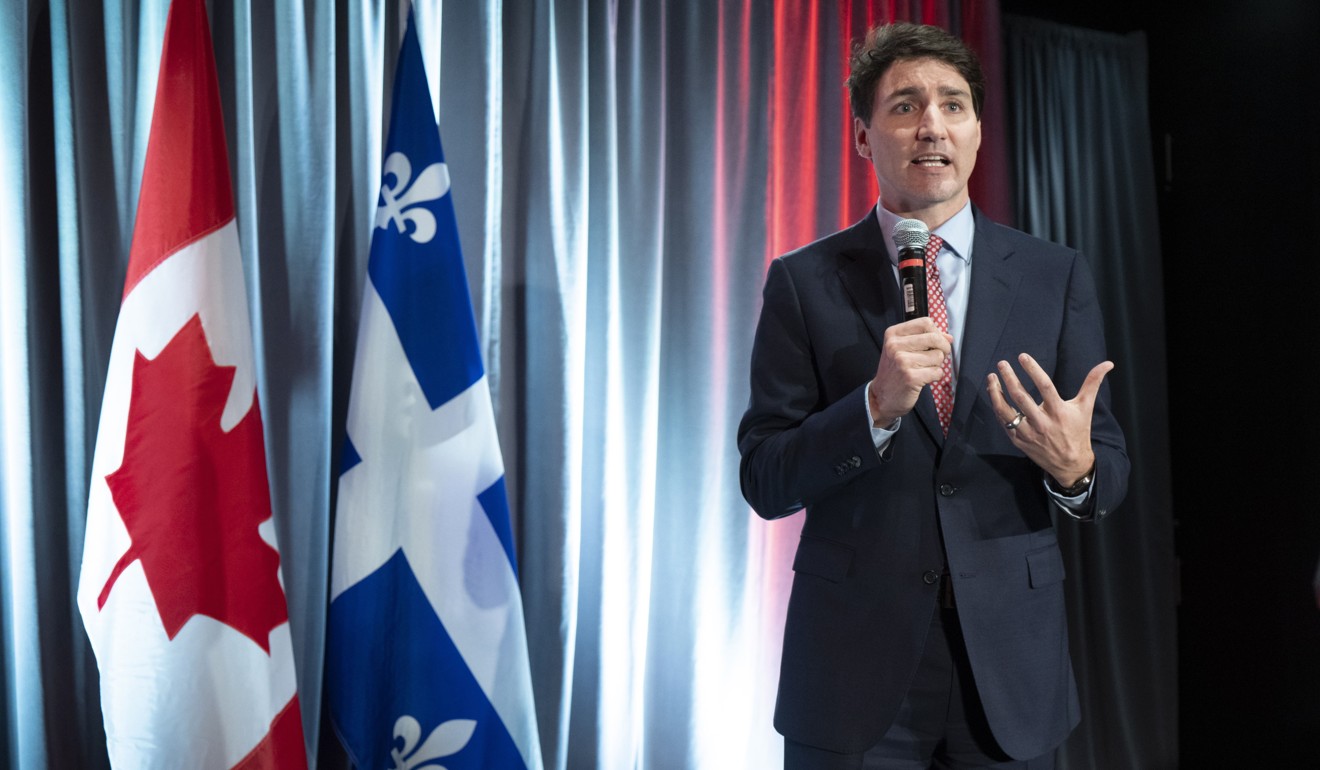
Canada summons Chinese ambassador over interrogation of Michael Kovrig
- Beijing must deport detained former diplomat or request a waiver of his diplomatic immunity, Ottawa tells Lu Shaye
Canada has launched an official protest against the interrogation of Michael Kovrig, the former Canadian diplomat detained in China, about his previous diplomatic work in the country, saying it violated the diplomatic immunity he is guaranteed under international law.
As tensions between the two governments continued to intensify, officials in Ottawa on January 10 summoned China’s ambassador to Canada Lu Shaye to argue that Beijing must deport Kovrig or request a waiver of his diplomatic immunity, a move Ottawa would not agree to, according to a report published on Wednesday evening by The Globe and Mail.
Lu, who accused Canada of “Western egotism and white supremacy” in an op-ed last Wednesday, was expected to address reporters later on Thursday.
Trudeau accuses China of ignoring detainee Michael Kovrig’s ‘diplomatic immunity’
The latest protest comes amid strained relations over the arrest of Chinese technology executive Sabrina Meng Wanzhou in Vancouver on December 1, followed nine days later by China’s detentions of Kovrig – now an analyst at the Hong Kong-based International Crisis Group – and Canadian businessman Michael Spavor. While Meng has been released on bail, both Kovrig and Spavor remain in detention in China, with limited consular access.

The two Canadians were detained on suspicion of endangering China’s national security in moves widely seen as retaliatory measures for the arrest of Meng, a high-level executive and daughter of the founder of China’s tech giant Huawei, on charges of violating US sanctions on Iran.
But the decision to question Kovrig about his diplomatic career, which began in 2014 as first secretary and vice-consul at the Canadian embassy in Beijing, has raised concerns for other diplomats based in the Chinese capital. Kovrig took a leave of absence from the Canadian government in 2016, and entered the country on his most recent trip on an ordinary passport and business visa.
China is not politicising Canadian drug smuggler it sentenced to death, state media claims
Canadian Prime Minister Justin Trudeau said China had “arbitrarily and unfairly detained two Canadian citizens”, and in Kovrig’s case, was “not respecting the principles of diplomatic immunity”.
“This is something that we are engaged in right now both with Chinese officials and with our partners around the world, where there is a concern for the need for all countries to do like Canada and respect the rule of law and the independence of our judicial processes,” he said.
Separately, Canadian citizen Ti-Anna Wang and her family were prevented from transiting through Beijing en route from South Korea to Canada on Wednesday, according to a report by the Toronto Star. Wang was also barred from entering China last week to visit her father, jailed dissident Wang Bingzhang, despite obtaining a visa to do so.
US says China’s death sentence against Canadian Robert Schellenberg ‘politically motivated’
On Monday, Canadian national Robert Schellenberg was sentenced to death by a court in the northeast China city of Dalian after losing his appeal against a 15-year prison sentence for drug trafficking. Ottawa has formally asked for clemency in Schellenberg’s case, which has sparked concerns over irregularities in the timing of his retrial and harsher sentencing.

